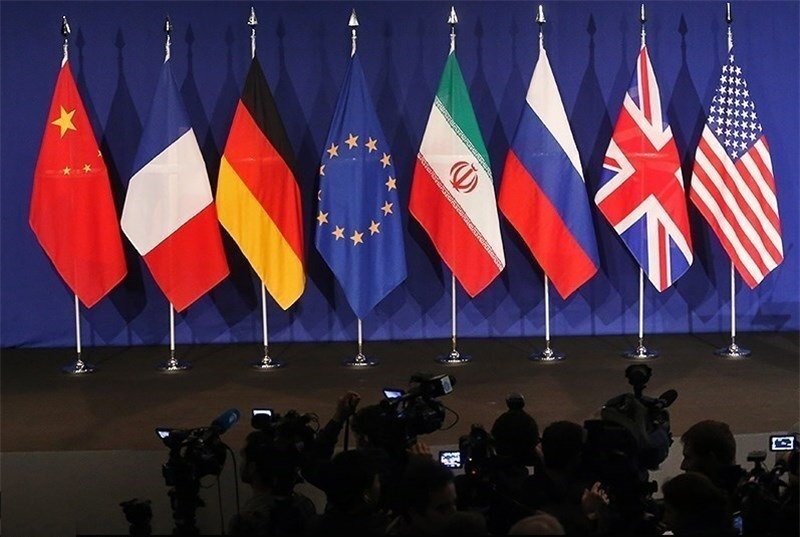

TEHRAN – U.S. President Joe Biden appeared to be following in the footsteps of his predecessor after he said that the United States will not be lifting its sanctions before Iran resuming full implementation of its commitments under the 2015 nuclear deal, officially known as the Joint Comprehensive Plan of Action (JCPOA).
In a Friday interview with CBS that was aired on Sunday, Biden said the U.S. will not lift sanctions first in order to get Iran back to the negotiating table. He also said that the Iranians should first have to stop enriching uranium.
Biden’s remarks dampened hopes that the new U.S. administrations would correct the failed policies of former President Donald Trump toward Iran, which Biden had vowed to change during his election campaign.
Although a senior U.S. official sought to downplay Biden’s controversial remarks on Iran’s right to enrich uranium, the damage was already done. The official told Reuters that Biden meant Iran must stop enriching uranium beyond the limits under the JCPOA, not the entire enrichment process.
But the official did not correct what Biden said about the sanctions, which are now the major stumbling block to reaching a settlement.
While Iran said the U.S. return to the JCPOA is contingent on lifting all the sanctions that were imposed after Trump pulled the White House out of the JCPOA, the Biden administration called on Iran to return to the nuclear deal without first getting a sanctions relief, something that Iran roundly rejected.
Leader of the Islamic Revolution of Iran Ayatollah Seyed Ali Khamenei has made it clear that Iran wants the U.S. to make the first move and lift all sanctions before any Iranian move to revive the JCPOA.
“If they want Iran to return to its JCPOA commitments, the U.S. should lift all sanctions in action. After they have done this, we will check if the sanctions have truly been lifted. Once this is done, we will resume our JCPOA commitments,” the Leader wisely said in remarks delivered at a meeting with a number of commanders and staff of the Air Force of the Islamic Republic of Iran Army on Sunday.
Iran had also said that it is not in a rush to get the U.S. back to the deal and it has enough tools to force the U.S. into respecting its international obligations under the JCPOA.
With Iran and the U.S. refraining from taking the first step toward resuscitating the JCPOA, pundits have speculated over who needs to get the nuclear deal revived. Aside from these never-ending speculations, the U.S. seems to be desperately seeking to prevent the total collapse of the deal but it apparently lacks the wisdom to make any move in this regard.
Ever since his election campaign, Biden has said he wants to salvage the deal because it is worth preserving. Therefore, salvaging the nuclear deal is a Biden campaign promise that if he doesn’t keep, he will only be signaling his failure to deliver on his promises.
All U.S. elections politics aside, the salvation of the JCPOA is pretty much in U.S.’s national interests. Biden officials have said the nuclear deal is an urgent issue for the U.S. and that they will place it high on their foreign policy agenda. Therefore, Biden’s remarks on the sanctions will only make things even more difficult for his national security team to resolve the Iran nuclear issue.
Because Iran seems to be determined to implement its stated strategy of further reducing nuclear commitments.
Iranian Foreign Ministry spokesman Saeed Khatibzadeh once again reiterated that Iran will stop implementing inspections and monitoring access beyond the IAEA safeguards. He also noted that Iran will stop implementing the Additional Protocol to the nuclear Non-Proliferation Treaty (NPT).
“If the other parties [to the JCPOA] do not fulfill their obligations, according to the law of the parliament, Iran will suspend the implementation of inspections beyond [IAEA] safeguards on February 21, and if the other parties return to their obligations, the implementation of the Additional Protocol can be done voluntarily. Everything depends on the choice of the Americans and Europeans,” Khatibzadeh said at a Monday press briefing.
The spokesman was referring to a nuclear law passed by the Iranian Parliament in early November that obligates the Iranian government to stop international inspections of Iran’s nuclear facilities by February 21 if the U.S. refrained from lifting its sanctions on Iran.
The United States is obviously concerned about this law but it continues to project its concerns onto Iran by implying that it is not in a rush to revive the 2015 Iran nuclear deal. The U.S. now can revive the JCPOA or lose it for good. Iranian Foreign Minister Mohammad Javad Zarif has warned the Biden administration against trying to build on Trump’s failures.
“The U.S. left & violated the nuclear deal. So it’s the US that has to return & implement its obligations. President Biden has a choice: Break with Trump’s failed policies, or build on his failures. Building on his failures will only bring further failure,” the chief Iranian diplomat said in a tweet on Monday.
Iran did not leave the JCPOA to return to it. Despite having reduced its nuclear commitments, Iran is still abiding by the JCPOA commitments, especially those related to monitoring access and inspections. But this compliance may soon come to an end if the Biden administration continues to procrastinate. The Biden administration signaled that it wants to build on Trump’s failed policies against Iran but it needs to know that failure breeds failure.
Related posts:
Views: 0
 RSS Feed
RSS Feed

















 February 9th, 2021
February 9th, 2021  Awake Goy
Awake Goy 
 Posted in
Posted in  Tags:
Tags: 
















